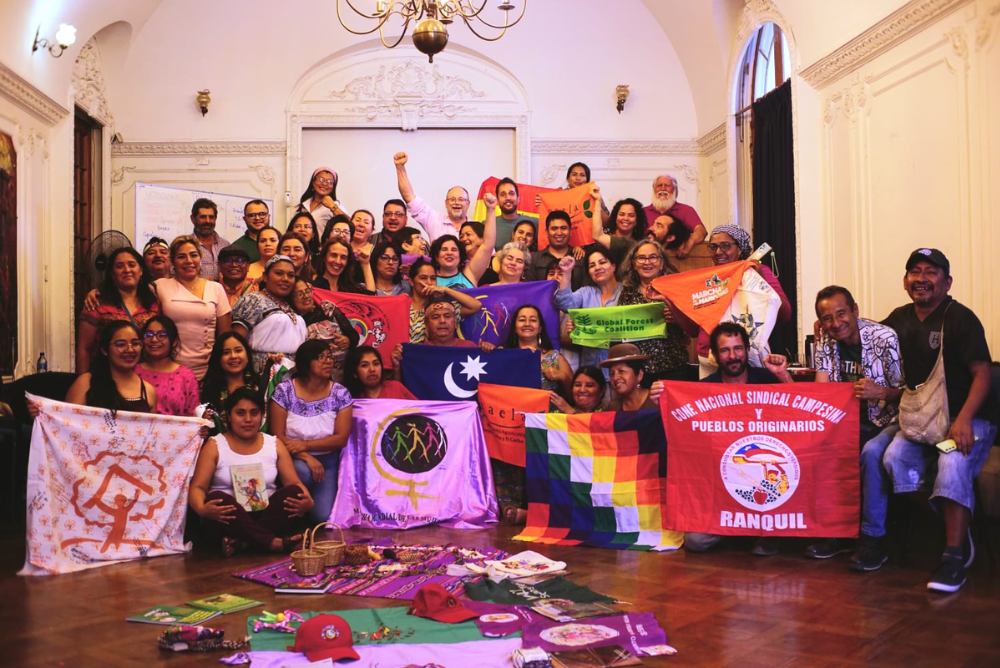3rd Assembly of the Continental Alliance of the Peoples of Latam for Food Sovereignty
The Alliance for Food Sovereignty of the Peoples of Latin America and the Caribbean met in Santiago, Chile, from February 25 to 27, 2024, for its Third Continental Assembly to analyze the current social, cultural, economic, environmental and political context of the region, which affect our peoples and territories.
This regional event was attended by 20 Latin American organizations from various food producing sectors of family farming, peasant agriculture, pastoralists, artisanal fisherfolk, harvesters, youth, women, and Indigenous Peoples, with delegations from 16 countries and more than 60 participants.
Issues such as the concern for the deepening of multiple crises crossed by systemic violence throughout the continent; the growing corporate domination of food systems through the capture of political decision-making spaces, social narratives, and the territories themselves, which systemically affect the participation of peoples and life in their territories, were addressed.
In response, this assembly served as a platform to reaffirm the principles and commitments of the peoples' struggle for solidarity, equality with social, political, economic and environmental justice; respect for human dignity and horizontal power relations; autonomy of decision and action; mutual support; revaluation of ancestral knowledge; Good Living and care as the center of the reproduction of life.
In its final Declaration the Assembly ratifies that "Agroecology is the solution to guarantee the Food Sovereignty of our peoples as paradigms that, in addition to promoting a diverse agro-food system that comes from our territories, retake spirituality, cosmovisions, intergenerational work, and full participation of women and youth, popular, peasant and community feminisms."


